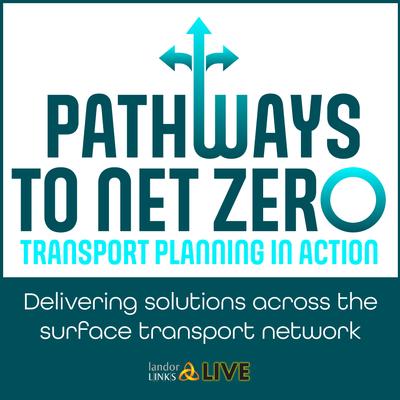Transport is a key enabler of economic growth and trade, providing the networks and services on which economies depend. Good public transport systems provide equal access to employment and services such as health and education and so promote economic activity, and have direct benefits to people, businesses, the environment, and the overall economy.
Transport systems — road, buses, trams, rail and cycling routes — must link various routes across local authority and regional boundaries. A review of spatial planning, currently underway, starts with a vision of what development is seeking to achieve and then tests scenarios to determine the optimum design and transport infrastructure to realise this vision. Within the net zero agenda, public transport and other sustainable transport must be the solutions to optimise the potential of any new development, and should be a prime determinant of where development should be located and also intensified.
Investment in transport networks can influence the functioning of labour markets, business productivity and competitiveness. These impacts interact over time and can lead to improvements in economic output and the geographical distribution of economic activity. They can also impact on the environment, quality of life and the overall attractiveness of towns and cities.
Chair: Cathryn Jones, Projects Director, SYSTRA
How the Dutch and Swedish development models deliver integrated public transport – and what can be learned
Jenny Raggett, Director, Transport for New Homes
Transport related drivers of growth
Dominic Walley, founder and director, Connect Economics
Delivering sustainable public transport in Germany: case studies
Thorsten Donn, Office for Urban Planning and Housing, Stuttgart
A different approach to transport planning: delivering public transport in Chippenham
David Milner, Director, Create Streets
Katja Stille, Director, Tibbalds Planning and Urban Design will also join the panel discussion.
In order to truly compete with the private car, public transport systems need to be planned and delivered as connected and integrated networks rather than 'mode by mode' offers that too often compete instead of complement.
A successful multimodal strategy will focus not only on on creating viable networks, but will include key mobility management strategies such as pricing reforms, parking, land use development impacts and community livability.
This three-part series of webinars will highlight the key elements of the multi-modal strategy that the UK should work towards. How do we integrate a series of modal layers that provides a seamless, convenient and attractive overall system for all? Expert speakers will consider the full system evolution including planning, funding, delivery and operation.
Webinar 1: Building a successful public transport networks: see the recording here
What are the key elements for a successful public transport network – and why are they seemingly so difficult to deliver in the UK?



TransportXtra is part of Landor LINKS
© 2025 TransportXtra | Landor LINKS Ltd | All Rights Reserved
Subscriptions, Magazines & Online Access Enquires
[Frequently Asked Questions]
Email: subs.ltt@landor.co.uk | Tel: +44 (0) 20 7091 7959
Shop & Accounts Enquires
Email: accounts@landor.co.uk | Tel: +44 (0) 20 7091 7855
Advertising Sales & Recruitment Enquires
Email: daniel@landor.co.uk | Tel: +44 (0) 20 7091 7861
Events & Conference Enquires
Email: conferences@landor.co.uk | Tel: +44 (0) 20 7091 7865
Press Releases & Editorial Enquires
Email: info@transportxtra.com | Tel: +44 (0) 20 7091 7875
Privacy Policy | Terms and Conditions | Advertise
Web design london by Brainiac Media 2020